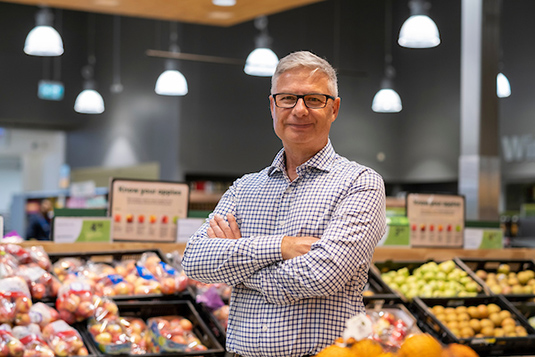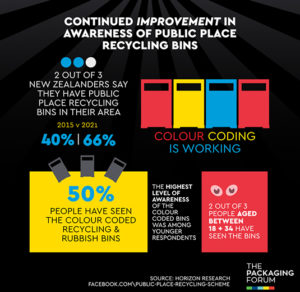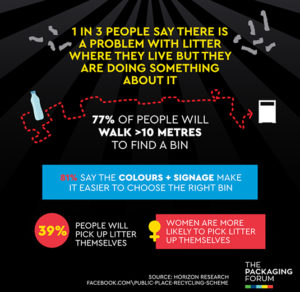Funding application for 2022 – 2023 are now open Apply Now
Member Portal
Not a member? Join us here
The sustainability tours at Visy Recycling and Villa Maria have been postponed due to the change in Alert Levels, with new dates to be announced soon.
Date: TBA
The tours will visit Visy Recycling’s MRF (material recovery facility) as well as its glass manufacturing plant, and are sure to be a fascinating insight into resource recovery at scale.
The second tour will look at how Villa Maria’s has put its sustainability principals into practice.
The tours and AGM are for current financial members, so please ensure your account is up to date and keep an eye out for your invite.
Due to the change in Alert Levels we have had to move this year’s AGM online. An invite will be sent to attend the webinar.
2 September 2021
Attendance is for our current financial members only, so please ensure your account is up to date and look out for your email invite.
Time: 10am
The AGM will include:
The speaker series will now be held as a series of short webinars. An email invitation will be sent with registration links for each webinar.
Special offer: All guests receive savings on wine purchases made in the cellar door
The country’s largest packaging industry group has welcomed Government’s move to phase-out difficult-to-recycle and some single-use plastics.
29 June 2021

The Packaging Forum CEO Rob Langford says the Forum, and its Soft Plastic Recycling Scheme (SPRS), had largely supported the proposal during its consultation period, and were pleased to see Government take the next step.
“There was a long consultation period, as there should be, and it’s great to see Government moving forward. It’s essential there are end-of-life solutions in place for packaging and in the case of the plastic types being phased out that is not the case.
“Oxo-degradable plastics are a prime example as they are neither recyclable or compostable,” Rob says. He added that it’s important to note bio plastics (often referred to as ‘compostable plastic’) will also be part of the single-use plastic item phase-out.
The Forum cautioned against the phase-out causing unintended consequences. As industry moves to alternative materials there must also be the development of recycling, reuse and other end-of-life solutions for these materials, as well as consideration around food safety, Rob says.
“We are therefore urging care when choosing alternatives,” he says.
Rob pointed out alternative materials, such as compostable and fibre (paper and cardboard) packaging also have challenges, especially when we consider New Zealand’s focus on a low-emissions and zero waste economy.
“Our Compostable Technical Advisory Group is currently developing a use-case for New Zealand and is busy consulting with industry and stakeholders,” Rob says.
Moving to alternative materials is a major undertaking for a lot of manufacturers, importers and retailers, he says.
The Forum’s submission during the consultation period called for a full cost benefit analysis, which follows Treasury guidelines, to assess impact on business, food safety, shelf life and cool-chain (particularly for export items).
“That’s where the $50 million Plastics Innovation Fund announced by Government is therefore very welcome and will be vital in helping industry transition and overcome challenges. We are watching with interest to see how those funds will be allocated and excited to see what innovative solutions are developed as a result.”
Phase-out timeline:
By late 2022:
By mid-2023:
By mid-2025:
Public recycling bins have made their first appearance in an Upper Hutt park thanks to help from The Packaging Forum.
25 June 2021
Maidstone Max – Tō Tātou Papa Tākaro, which was recently redeveloped by the Upper Hutt City Council, has been kitted out with four colour-coded public place recycling and rubbish bins. This, thanks in part to a $5,400 grant from the Forum.
Council Waste Minimisation Officer Richard Schouten says the bins take glass, mixed recycling and general waste. “Maidstone Max – Tō Tātou Papa Tākaro is Upper Hutt’s premier adventure play space, and is a great example of putting a waste minimisation lens across a large public infrastructure project.
“These recycling bins are a first for an Upper Hutt public park and the feedback so far has been overwhelmingly positive. The young people in our community are in tune with sustainability and waste minimisation and it’s been exciting to see them embrace the new recycling bins in their shared social spaces.”
Richard says the bins’ standardised colours make it easy for the public to use them correctly. These bins are seen across many other districts throughout the country, so the public instantly recognise what they are.”
The packaging Forum CEO Rob Langford says the colour-coded bins were originally designed as part of the Litter Less Recycle More project, but are available through the Forum’s bin partner Tilley Bins to anyone wanting to install the well-recognised system. There are now over 160 sets of these bins in 18 regions, he says.
“We are thrilled to have the bins we designed as the first in a park in Upper Hutt,” Rob says. “They were designed to make recycling easy and we’ve found that they work very well.”
The park was reopened at the end of a nine-month redevelopment which included a remodelled playground, wheelchair access, state-of-the-art skate park, pump track and half basketball court among its features and attractions.
The Packaging Forum’s recent grant funding round called on applications for projects which would tackle litter reduction in New Zealand. It attracted some excellent applications, with four projects being awarded a total of $29,500 in funding.
2 June 2021
Trailer to help keep it green and clean
Promoting litter reduction and encouraging reuse over single-use goes hand-in-hand, with Envirohub Marlborough’s washable service ware trailer hitting both marks.
The organisation was awarded a $10,000 grant to upgrade their equipment with a wash trailer for washable, reusable service ware at public events in and round Picton.
The Envirohub, which works with the local community to enhance sustainability practices in and around the town, currently offers the washable service with makeshift equipment. However, the lack of infrastructure meant it was not streamlined.
A trailer will not only greatly improve the efficiency of the service but provide opportunity for increased awareness and public engagement.
Keeping compostables, recyclables out of landfill
The Te Pokapu Tiaki Taiao o Te Tai Tokerau Trust (Far North Environment Centre), based in Kaitaia, applied for funding to help with a project which will divert compostable and recyclable material from landfill at the local market.
The Centre’s recent recycling bin trial at the markets found a strong zero-waste contingent, with most stalls using compostable or recyclable packaging. It also found many members of the public were keen to reduce waste to landfill. However, a lack of infrastructure meant compostable or recyclable material was going to landfill.
A grant of $9,520 from The Packaging Forum will fund recycling and compost bins as well as a paid staff member at the market to educate the public for six months.
The Trust and its environment centre are central to a growing network of Northlanders working to improve their environmental impact.
Punching a hole in the cardboard problem
Sustainability Trust in Wellington has developed a simple but innovative local use for post-consumer cardboard by turning it into packing material or a compost additive.
The Forum awarded a grant of $5,000 for the Wellington-based Trust to commission a cardboard perforator. The result of the perforating process is a recyclable material which can be used to package breakable items sold by the Trust’s EcoShop, as well as an additive for the community compost hub.
The commercial viability of recycled cardboard has suffered as a result of China’s National Sword and similar overseas policies, with the Forum welcoming projects for alternative, local uses.
The Trust’s mission is to create warm, dry, healthy homes and help reduce people’s impact on the environment.
Project to wash away single-use service ware
Public events can create a large amount of single-use waste from service ware, with Res.Awesome in Dunedin having initiated a project which will see a portable wash station rolled out for reusable service ware.
The Forum awarded $5,000 to the project, which will not only reduce since-use service ware waste at events, but influence public behaviour change in terms of reuse over single-use.
The service will provide vendors with reusable plates, bowls, cups and cutlery to serve patrons. These can then be returned to a central wash truck where patrons can clean their service ware before it is sanitised.
Res.Awesome works towards creative, connected and innovative resource recovery in Dunedin City. They work to support businesses, schools and communities to reduce their waste through workshops, waste auditing, and zero waste management as well as creating a Dunedin Resource Recovery database.
The latest Soft Plastic Recycling Scheme (SPRS) webinar will outline the current state of the scheme and what the future holds.
11am, 24 June 2021
This is a member-only event. To register your interest email Donna Hellens.
The webinar will feature Bruce Middleton from Waste Not Consulting, Future Post Founder Jerome Wenzlick and SPRS Scheme Manager Lyn Mayes.
They will outline what soft plastic New Zealanders are recycling, how much they are recycling, and where they are recycling it as well as what’s next for the scheme.
This is a member-only event. To register your interest email Donna Hellens.
Our Composable Packaging Technical Advisory Group Project Manager Kim Renshaw (Beyond the Bin founder) will lead a webinar to introduce its work.
11am, 3 June 2021
Attendance for members is free. Attendance for non-members is $30. To get tickets click here.
Kim will take us through the use case for composable packaging and launch the group’s consultation document, while Chris Purchas of the WasteMINZ Organic Materials Sector Group will speak about their views on this packaging type.
Attendance for members is free. Attendance for non-members is $30. To get tickets click here.
Frucor Suntory has introduced cardboard packaging for its multipacks of Pepsi, Pepsi Max, Mountain Dew and 7UP.
04 May 2021
The change is one of several the Australasian beverage company has undertaken to help achieve its sustainability goal of zero waste to landfill by 2030.
The cardboard replaces shrink wrap and will remove 2.7 million pieces of plastic from going to landfill each year as well as making it easier for customers to recycle the packaging.
Read more here.
DB Breweries has set a list of ambitious sustainability targets alongside the launch of its 2020 Sustainability Report.
03 May 2021
The company has announced it aims to use only energy from renewable sources, reach zero waste to landfill in production, and balance all of the consumed volume of water it uses, by 2030.
Read more at dbsustainability.co.nz
A recent survey on public place recycling and litter has seen a mixed bag of results, with awareness around public bins increasing but willingness to make extra effort to use them declining.
07 April 2021
The survey, conducted in early March by Horizon Research for The Packaging Forum, also found more people believe there is a problem with litter where they lived, compared with a year earlier.
The survey spoke to over 1,200 people about public place recycling and rubbish bins and found the number of people who have access to public bins continued upwards to 2.4 million adults (66% of respondents). This was an increase of 2% on 2020 and 25% from the first survey in 2014.
Bins to make recycling easier, better
The Packaging Forum CEO Rob Langford says they have been working over recent years to rollout new colour-coded bins which help making recycling and disposing of rubbish easier to get right.
“There are a lot of people who want to do the right thing and recycle, but don’t have the information to do so correctly which causes unintended contamination issues. With the right information they have the potential to have a hugely positive impact.”

While awareness of these colour-coded bins declined slightly to 50%, it was still well up from 37% in 2019.
“The Covid-19 pandemic has had an impact and the research shows a drop in awareness where the bins were removed during lockdown but have not been returned,” Rob says.
It was very encouraging to see awareness was highest among people aged 18 to 24, he says. “Those aged 75 and over had just as much awareness, so it’s the group in the middle where more focus is needed.”
The colour-coded bins have continued to be very effective, Rob says, with 81% of people reporting they made knowing what to recycle and what to put in the rubbish easier. “This has been the consistent response over the past three years, so the design is working.”

More litter, less effort
He says it was interesting to see that while litter was perceived as more of a problem, with 34% people agreeing it was (up 5%), individuals were less likely to make an extra effort to use public bins. The report showed 28% of people would walk more than 40 metres to find a bin, down from 37% in 2020.
However, while attitudes towards telling someone else to pick up litter they had dropped changed little from 2020, people were slightly more likely to pick up litter themselves – up 3% to 39%.